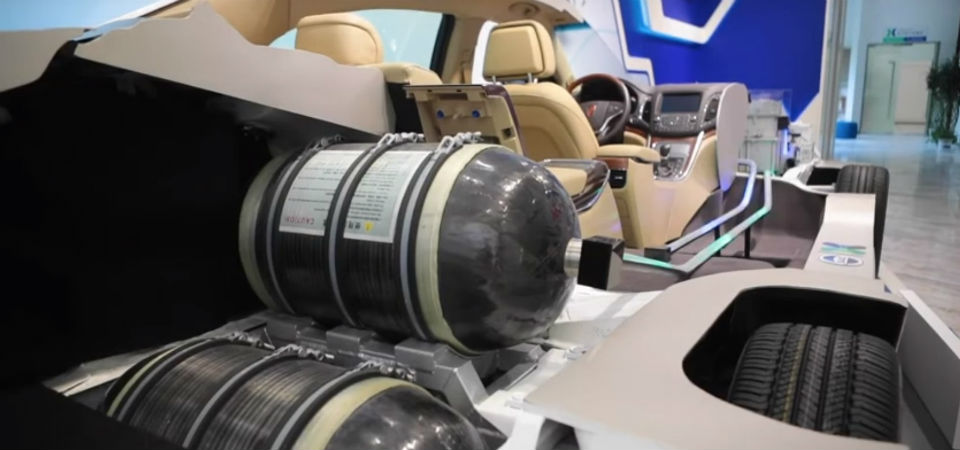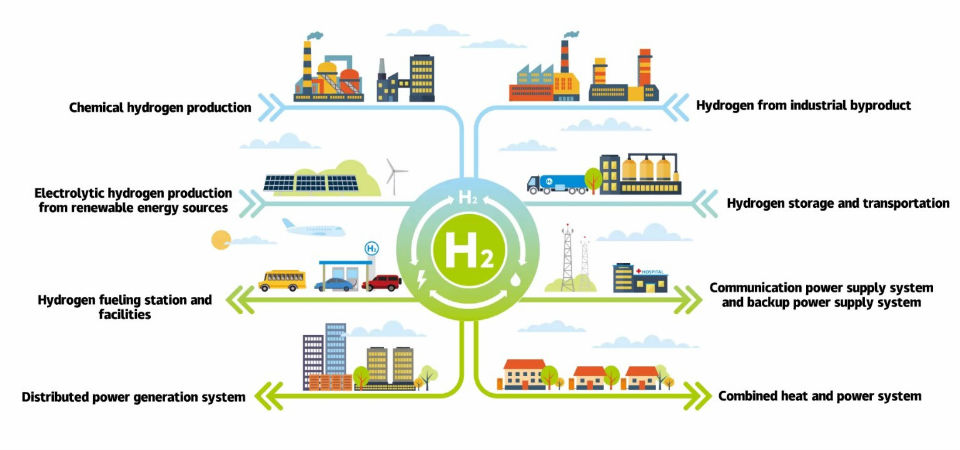The digital platform has significantly sped up the research and development process and reduced costs for several automotive and fuel cell companies, including FAW (First Automotive Works), SHPT (Shanghai Hydrogen Propulsion Technology) and Sunrise Power.
It uses mathematical formulas to accurately model the physical and chemical interactions inside the engine.
The international project is led by two principal investigators, Professor Jin Xuan, of Loughborough University, and Professor Kui Jiao, of Tianjin University, in northeast China.
Through the collaboration, the fuel cell simulation platform developed by Tianjin University is enhanced by the artificial intelligence and high-precision 3D printing technologies developed by Loughborough University.
The project was recently highly commended at the IChemE Global Awards for Research Projects.
Prof Xuan said: “Low performance and high cost is a huge drawback at the minute and is limiting commercialization - the power output needs to double before this technology can become commercially viable.
“But in order to achieve high-performance fuel cells, we need a much deeper understanding of how they work.
"The simulation platform developed by the project is being used to help optimise these fuel cell engines so that the final fuel cell product will be close to design specs and with maximum performance without expensive in-process modification or trial and error.
“Essentially, we help them to do the product development digitally, on a computer, rather than physically in a workshop, saving a significant amount of money and time.”
 Cross-section of a hydrogen fuel car showing the storage tanks
Cross-section of a hydrogen fuel car showing the storage tanks
With the help of the simulation platform, the Chinese car manufacturer Sunrise Power has successfully developed the country’s first 5,000-hour fuel cell automotive engine. FAW - another car maker - has successfully released the Hongqi H5 fuel cell car.
Shanghai Automotive (SAIC) also launched the ROEWE 950, the only fuel cell passenger vehicle in China which finished the product homologation, vehicle sales and license registration, equipped with SHPT’s PROME P240S fuel cell stack.
Prof Xuan said: “$17bn has been pledged to get the technology up and running over the next four years in China, with a target of one million hydrogen fuel cell vehicles on the road in 10 years.
“I’m proud that our project is paving the way for this vision.”
 How hydrogen is gathered and distributed
How hydrogen is gathered and distributed
Hydrogen cell technology differs slightly from standard electric-powered vehicles.
Electric cars typically use lithium-ion batteries to store energy which is produced outside the vehicle.
Hydrogen fuel cells, on the other hand, use electrochemical reactions to produce energy (electricity) by consuming hydrogen.
When the hydrogen tank is empty it is refuelled like a traditional petrol car.
The project, funded by the Royal Society’s Newton Advanced Fellowship, is part of the UK’s Official Development Assistance (ODA) aiming to promote the economic development and social welfare of partner countries such as China.
The UK, through the Newton Fund program, builds research and innovation partnerships to support China addressing critical development challenges including climate change and environmental issues.

The Newton Fund
The Newton Fund builds research and innovation partnerships with 17 active partner countries to support their economic development and social welfare, and to develop their research and innovation capacity for long-term sustainable and equitable growth.
By fostering world-class collaborations between academics and innovators in the UK and developing countries we aim to address critical development challenges including: poverty, access to healthcare, climate change, and peace and security. As well as growing the research and innovation capacity of developing countries, the programmes we fund contribute to the continued strength of the UK’s research and innovation system and support our wider prosperity and global influence.
The Newton Fund was launched in 2014 and originally consisted of £75 million each year for 5 years. In the 2015 UK Spending Review it was agreed to extend the Newton Fund from 2019 to 2021 and double the investment, leading to a £735 million UK investment up to 2021, with partner countries providing matched resources within the fund.
ENDS


